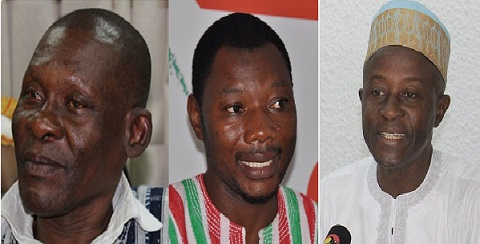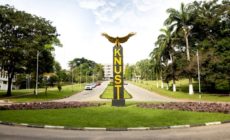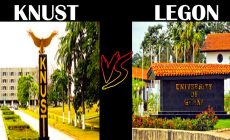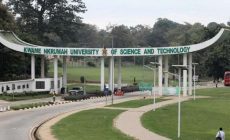Disturbances at KNUST avoidable — Political parties
- Posted on
- Comment
Three political parties have described the recent disturbances at the Kwame Nkrumah University of Science and Technology (KNUST) as largely avoidable if the authorities of the school had exercised some discretion and maturity in the handling of the issues.
They have, therefore, called for proper dialoguing to permanently bring the matters involved to a closure in order to forestall recurrence in the future.
Speaking to the issue in separate interviews with the Daily Graphic, the First National Vice Chairman of the Great Consolidated Popular Party (GCPP), Mr John Amekah, described the situation and the closure of the university as a “black spot” in the history of academic life in the country.
The General Secretary of the National Democratic Party (NDP), Mr Mohammed Frimpong, said it was a leadership failure, lack of presence of mind and the exercise of non-discretion.
The National Chairman of the People’s National Convention (PNC), Mr Bernard Mornah, was of the view that it was time for university administrators to appreciate the fact that students at the universities were not pupils but mature adults who had a sense of their own, with some working in high positions and who had enrolled at the university to add paper qualification to their portfolio.
Closure of the KNUST
The KNUST was last Monday closed down indefinitely following a violent demonstration by students on the campus in Kumasi.
The Ashanti Regional Security Council (REGSEC), which took the decision at an emergency meeting with the university authorities, also imposed a dusk to dawn curfew on the university with immediate effect.
The students had embarked on a peaceful demonstration against what they termed the “tyrannical” style of the university administration, which turned violent, leading to the massive destruction of public and individual properties.
The demonstration was also intended to express the concern over the use of force by the Vice Chancellor, Prof. Kwasi Obiri Danso, to cow them into submission.
Prior to that, 11 students of the Katanga Hall of the university who had participated in the usual peaceful entertainment programme of the hall dubbed “morale sessions” were allegedly brutalised and arrested by the university’s internal security and handed over to the KNUST police station, where they were detained.
Conversion of halls
Sharing his views on the matter, Mr Mornah said the extent of violence that characterised what otherwise started as a peaceful protest and the way the university authorities handled the students showed that there was simmering tension.
The tension, he said, had been occasioned by a move by the authorities to convert single-sex halls into mixed halls which had already stoked some tension on the campus and added that all what happened took place because school authorities were treating mature students like pupils.
Home sense versus academic maturity
Mr Amekah of the GCPP was of the view that university authorities needed to be educated not only academically but on the commonsensical approach to handling issues as matured persons, stating that clearly, they have not been able to prove that they had acquired that kind of knowledge.
What the university authorities lacked, he said, was that culture of having to be a father to accommodate, to listen and weigh what the students were saying and see how best to handle the issues.
For him, the incidents at the KNUST were a wake-up call on other universities to learn not to use force but dialogue to solve challenges on university campuses.
Attempting the impossible
Mr Mohammed Frimpong of the NDP posited that the timing for the decision of the university was very important because what had happened so far gave the impression that somebody wanted to uproot decades of students’ philosophy or way of life that they called today as vandalism.
Explaining further, he said, one could not just get up one day and decide to uproot the way of certain people within a very short time, just because it was abhorrent to one as an individual.
Unfortunately, he said, there was the impression that the current vice chancellor forcefully tried to do away with that tradition, saying: “It is humanly impossible to do so. You want to bring in more female students but there are other means of achieving that.”











 (Selorm) |
(Selorm) |  (Nana Kwesi)
(Nana Kwesi)